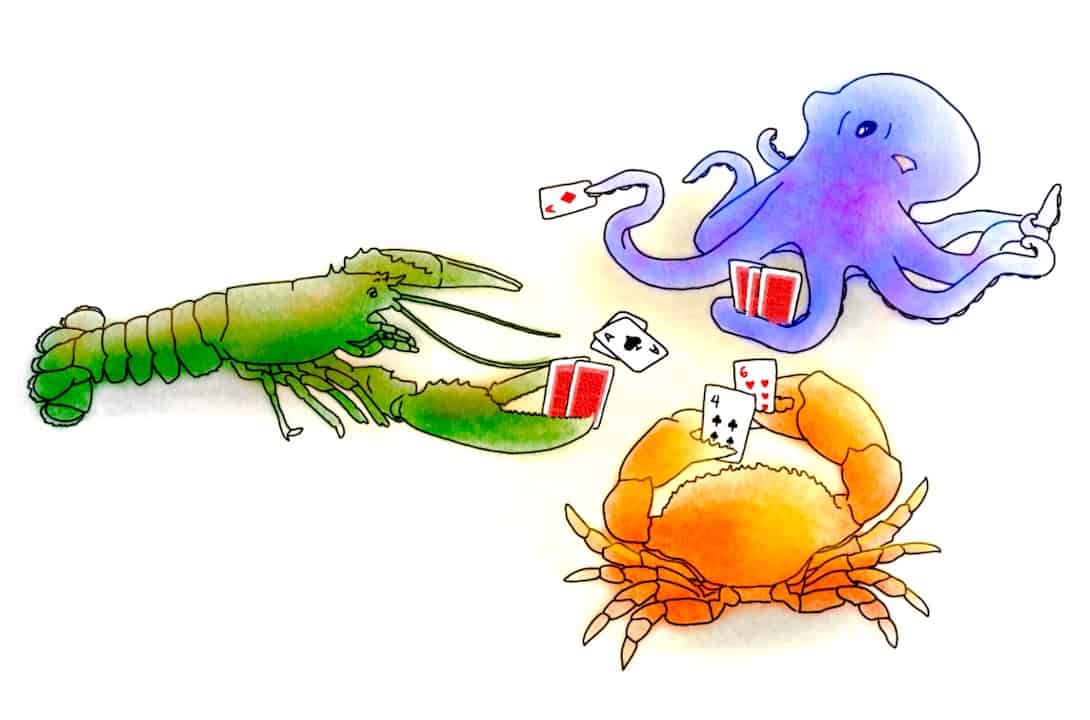Content warning: This article mentions animal abuse.
On November 19, in response to findings by the London School of Economics (LSE), the UK government announced that octopuses, crabs, and lobsters will be recognized as sentient beings by law.
This announcement comes after years of well-established scientific research that says that these animals are intelligent and have consciousness. The LSE conducted a review of over 300 studies, which demonstrates sufficient evidence for the sentience of creatures either classified as cephalopods or decapods.
The science behind sentience
Sentience was defined using eight overall criteria across the studies. The ultimate aim when determining sentience, as explained by the researchers in their report, was to see whether the target creatures have “the capacity to have feelings, such as feelings of pain, pleasure, hunger, thirst, warmth, joy, comfort, and excitement.” The criteria looked at phenomena such as whether the creatures had reflex responses to pain, whether they would adapt their behaviours to avoid unpleasant sensations, or whether they engaged in self-protective reflex behaviours like rubbing a place of injury to soothe the pain from it.
The review by the LSE concluded that a sufficient amount of the listed criteria were met by a number of animals categorized as cephalopods — octopuses, squids, cuttlefish — and decapods — crabs, lobsters, and shrimp.
Now that cephalopods and decapods are recognized as sentient beings, it is inevitable that we will consider and explore topics regarding the consciousnesses and minds of these animals.
There has already been speculation about the consciousness of octopuses. Some reports even suggest that octopuses may experience dreams. They have different stages of sleep, including some that are similar to the rapid eye movement sleep stage in mammals, which is associated with dreaming. Octopuses are also often described as incredibly intelligent, and are able to pass cognitive tests designed for children up to four years old.
What impact does this ruling have?
Although the law currently has no direct impact on the fishing, shellfish catching, or restaurant industries, it does have an impact on the welfare of these animals and how caretakers will treat them.
A rather inhumane example of a behaviour that will now be called into question is that of killing lobsters by boiling them alive. While it is no longer a common practice, there are still relatively accessible ways to buy lobsters for the purpose of boiling to death. The lobsters being boiled would have to endure immense pain until their pain receptors are burnt off. This practice has always seemed barbaric, but it appears even more so now that these creatures will be recognized as sentient beings by legislation.
Lord Zac Goldsmith, the UK Animal Welfare Minister, said that “[establishing] the Animal Welfare Sentience Bill provides a crucial assurance that animal well-being is rightly considered when developing new laws. The science is now clear that decapods and cephalopods can feel pain and therefore it is only right they are covered by this vital piece of legislation.”
The bill, once implemented, will also lead to the creation of an Animal Sentience Committee that will be responsible for overseeing the improvement of animal welfare.
Despite the passing of this legislation, many researchers are not optimistic for significant change to the status quo. Baroness Jenny Jones, a UK politician, argued that the UK government will continue to ignore issues regarding animal welfare and continue as they always have, just as they have done about climate change.
Philosophical implications
By giving all of these creatures the status of sentience, we are acknowledging that they have a capacity for pain, pleasure, joy, comfort, excitement, boredom, and more.
Any reasonable person would also acknowledge that pain, for the most part, is intrinsically bad. Therefore, we should be working to reduce pain in the world, regardless of which moral theory you subscribe to.
It follows, then, that a part of action to reduce pain in the world would be to look after sentient creatures. Such an action plan would have to involve respecting their right to live and stopping both the destruction of their natural habitats as well as human consumption and killing.
This report and ruling are an important step in fixing our destructive relationship with the natural world. Similar legislation must be implemented globally to move forward on the path to a more equitable world, both for human and non-human animals.


